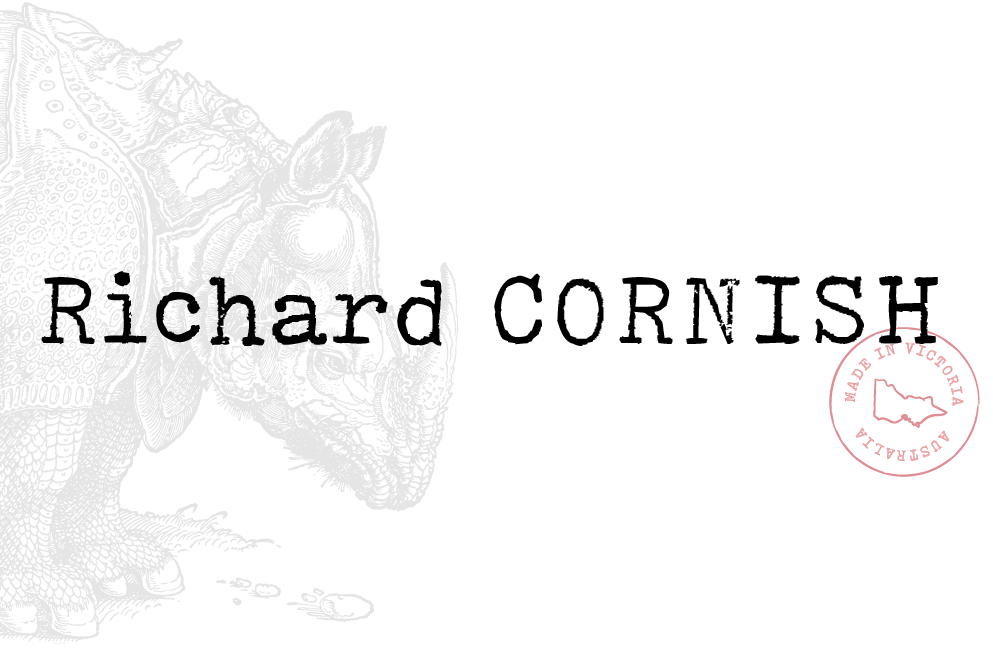Is this Australia's best Jamon?
Tammi Jonas, of Jonai Farms, holding perhaps the best air-dried ham made in Australia.
It is perhaps the best air-dried ham made in Australia and it tastes almost exactly like some of Spain’s best jamón serrano – if not better. Made from pigs raised on the side of an extinct volcano in Central Victoria these hams are being sold for over $1200 a piece. The jamón maker is Tammi Jonas, a regenerative farmer and butcher. She and her husband Stuart Jonas farm 30ha of fertile volcanic soil at Eganstown 30 km northeast of Ballarat. The farm also has an onsite butchery and together they are called Jonai Farms and Meatsmiths. Here they raise a herd of about 130 pigs and a small herd of beef cattle. “We took ourselves to Spain several years ago and made our way to the capital of jamón production, a town called Jabugo in Extremadura,” explains Tammi as she takes a razor-sharp boning knife to a piece of pork. “The whole centre of town is dominated by what looks like blocks of flats,” she says. “But these are in fact curing rooms. They are built to make the most of the mountain air.” She comments that the climate and altitude of their Eganstown farm is not dissimilar to the region in the south-west of Spain where many of the jamóns are made. “We both experience hot dry summers and cold winters,” she says working the tip of the blade close to the bone.
Two jamóns hanging side by side at Jonai Farms, Eganstown, just outside of Daylesford.
Their jamóns start with large black pigs. These are an old breed of pigs suited to life outdoors. The pigs root about on pasture and their feed is supplemented with spent brewer’s grain from Holgate Brewery, whey from cheesemaking at Azzuri Cheese and food waste that would otherwise head to landfill. This could be date paste that was destined for muesli bars, out of date eggs or strawberry puree. Tammi uses large old sows that are no longer fertile. Their legs are massive, some weighing over 20kg. They are prepared and then placed under salt for two weeks, cleaned, then firmed in a chiller for a fortnight and then sent to an ageing room where the humidity and temperature are controlled. Here they silently hang for two to three years. Over that time the protein breaks down into delicious amino acids while the salt halts decay.
Tammi and her team also make a range of hams, bacon and pates. “Salume and charcuterie are essential for a small farm like ours,” says Tammi. She and Stuart sell almost all their fresh pork and preserved products through direct farmgate sales and subscription. She explains that it used to cost $200 just to process a whole pig into fresh cuts of pork. Tammi and Stuart decided to turn their business around. Tammi trained to become a butcher and together they went on the long and arduous process to build their own on-site butchery and drying room. After a protracted conflict with authorities, they proved that small on-farm butcheries were suitable for the small Victorian farmer, particularly in an economic environment in which local abattoirs are closing down.
This meant that the Jonai Farms team became capable of adding value to their pork and beef. More importantly, they were able to add shelf life to their range of products. Hams, bacons, guanciale and pancetta last much longer and bring in more value for the farmer than pork chops. “And it still costs me, with all the extra work,” says Tammi. “$200 to process a pig.” She employs three butchers and over the years, most of them have been women. She and Stuart have also tutored 400 other butchers and farmers on their training days, many of whom have gone on to develop their own business.
The proof is in the tasting. Tammi takes out a large leg of jamon and lays in a jamóneira – a special cradle used to slice jamón. She takes a long sharp knife, hones it on a steel, then slides the thin steel blade silently under the ruby coloured flesh, the muscles streaked with lines of pearl white surrounded by a layer of creamy fat. Small slices, half the size of a calling card and about as thin, are laid out on a plate. The white fat feels cool on the tongue. Like good chocolate. There is the aroma of sweet pork and a darker, more developed flavour. Like that found in aged, cooked cheeses such as the best Dutch Gouda. There are floral and herbaceous notes, a clean line of acidity and a pleasant bitterness. There is a faint hint of a crunch when chewed, a good sign – these are salts of amino acids that have broken down as the jamón ages to form tyrosine crystals – nature’s MSG.
The thin steel blade slides silently under the jamón.
One of the biggest differences between Jonai Farms jamón and the Spanish original is the lack of rancidity. A certain amount of oxidised fat flavour is a hallmark of many Spanish jamóns – something missing from its Antipodean tribute. These jamóns are a remarkable testament to what Australian farmers are capable of when freely allowed to practice traditional European ways of preserving meat.
Whole legs $85 per kilogram. Pre-sliced jamon from the farm gate $120 per kilogram.
Jonai Farms Jamon and Rosehip and Hawthorn Berry Cocktail.
Update April 2020: Many of the details in this article have changed since it was written in 2019 due to the economic impact of Covid 19.




